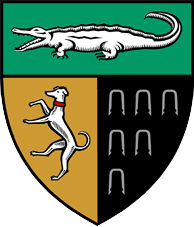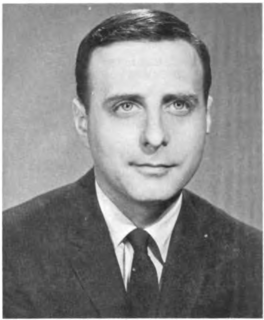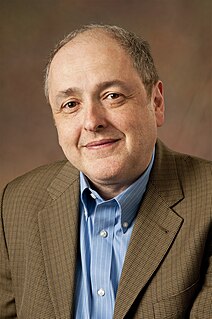Related Research Articles

In the United States,a law school is an institution where students obtain a professional education in law after first obtaining an undergraduate degree.

Yale Law School is the law school of Yale University,located in New Haven,Connecticut. Established in 1824,it has been the top-ranked law school in the United States by U.S. News &World Report every year since the magazine began publishing law school rankings in the 1980s.

Benjamin Nathan Cardozo was an American lawyer and jurist who served as an Associate Justice of the Supreme Court of the United States. Previously,he had served as the Chief Judge of the New York Court of Appeals. Cardozo is remembered for his significant influence on the development of American common law in the 20th century,in addition to his philosophy and vivid prose style.
Guido Calabresi is an Italian-born American legal scholar and Senior United States Circuit Judge of the United States Court of Appeals for the Second Circuit. He is a former Dean of Yale Law School,where he has been a professor since 1959. Calabresi is considered,along with Ronald Coase and Richard Posner,a founder of the field of law and economics.

The Benjamin N. Cardozo School of Law is the law school of Yeshiva University,located in New York City. The school,founded in 1976,is named for Supreme Court Justice Benjamin N. Cardozo. Among the top 100 law schools,only three schools are younger than Cardozo,which graduated its first class in 1979. Cardozo is currently ranked 53rd by U.S. News and World Report ranking of law schools and 22nd in part-time law schools. Its intellectual property program was ranked 12th in the nation,and its dispute resolution program was ranked 6th. The Cardozo faculty is ranked No. 32 in the nation for scholarly impact.

The University of San Diego School of Law,commonly referred to as USD Law,is a law school located on the 182-acre (0.74 km2) campus of the University of San Diego in San Diego,California in the community of Linda Vista. Founded in 1954,the law school has held ABA approval since 1961. It joined the Association of American Law Schools (AALS) in 1966.

Edward Roy Becker was a United States Circuit Judge of the United States Court of Appeals for the Third Circuit and a United States District Judge of the United States District Court for the Eastern District of Pennsylvania.
Paul F. Campos is a law professor,author and blogger on the faculty of the University of Colorado Boulder in Boulder. Campos received his A.B. (1982) and M.A. in English (1983) from the University of Michigan and in 1989 his J.D. from the University of Michigan Law School. Campos worked at the law firm Latham &Watkins in Chicago from 1989-1990 and became an associate professor at the University of Colorado in 1990,where he teaches classes on property,punishment theory,jurisprudence and legal interpretation.

Henry Jacob Friendly was an American lawyer and jurist best known for his tenure as a circuit judge on the United States Court of Appeals for the Second Circuit.
Alexander Mordecai Bickel (1924–1974) was an American legal scholar and expert on the United States Constitution. One of the most influential constitutional commentators of the twentieth century,his writings emphasize judicial restraint.
The Competitive Tax Plan is an approach to taxation,suggested in the United States,that would impose a 10–15% value added tax (VAT) and reduce personal and corporate income taxes. The plan was created by Michael J. Graetz,a tax law professor at Columbia Law School and a former Deputy Assistant Secretary of the Treasury for Tax Policy. Graetz states that the plan would generate enough revenue to exclude families earning less than $100,000 of annual income from having to pay income taxes or file tax returns. The Competitive Tax Plan would provide a new payroll tax offset to replace the Earned Income Tax Credit,protecting low and moderate income workers from any tax increase under the new system. Under the initial proposal,households with an annual income of more than $100,000 would be taxed at a flat 25% rate and the corporate income tax rate would be reduced to 25%. Graetz argues that reducing the corporate tax rate "would make the United States an extremely attractive nation for corporate investments for both U.S. citizens and foreign investors". In 2013,Graetz presented an updated version of his plan for 2015.
George P. Fletcher is the Cardozo Professor of Jurisprudence at Columbia University School of Law.
Joseph Anthony Greenaway Jr. is a United States Circuit Judge who sits on the United States Court of Appeals for the Third Circuit and previously sat on the United States District Court for the District of New Jersey. On February 9,2010,he was confirmed to his seat on the Third Circuit,filling the vacancy created by Justice Samuel Alito's elevation to the United States Supreme Court. Greenaway had been mentioned as a possible candidate for the Supreme Court by President Barack Obama.
Lawrence Meir Friedman is an American law professor,historian,expert in American legal history,and author of nonfiction and fiction books. He has been a member of the faculty at Stanford Law School since 1968.
Nora V. Demleitner is the President of St. Johns College - Annapolis (2022-present). Prior to this she served as the Dean of Washington and Lee University School of Law from 2012-2015 and Dean of Hofstra University School of Law from 2007-2012.

Brian Leiter is an American philosopher and legal scholar who is Karl N. Llewellyn Professor of Jurisprudence at the University of Chicago Law School and founder and Director of Chicago's Center for Law,Philosophy &Human Values. A review in Notre Dame Philosophical Reviews described Leiter as "one of the most influential legal philosophers of our time",while a review in The Journal of Nietzsche Studies described Leiter's book Nietzsche on Morality (2002) as "arguably the most important book on Nietzsche's philosophy in the past twenty years."
Arizona Christian School Tuition Organization v. Winn,563 U.S. 125 (2011),is a decision by the Supreme Court of the United States involving taxpayer standing under Article Three of the United States Constitution.
John Kent McNulty was an American legal scholar,who was a professor of law at the University of California,Berkeley for 38 years from 1964 to 2002 and who as a legal educator and scholar,was influential in shaping U.S. tax law policy debate during the later quarter of the 20th century.

Anne Lester Alstott is Jacquin D. Bierman Professor in Taxation at Yale Law School and an American legal academic. She graduated summa cum laude from Georgetown University in 1984 and graduated from Yale Law School in 1987. Following law school,she served as associate attorney at Sullivan &Cromwell and as Attorney Advisor at the Office of Tax Policy.
Kristin Hickman is an American legal scholar known for her work in the fields of administrative law,tax administration,statutory interpretation,and tax law. She is a Distinguished McKnight University Professor and the Harlan Albert Rogers Professor in Law at the University of Minnesota Law School. Her work is regularly cited by United States Courts,including the United States Supreme Court. She is known for her scholarship on regulatory practice and judicial deference,particularly Chevron deference.
References
- 1 2 "Edward A. Zelinsky, Morris and Annie Trachman Professor of Law". Cardozo (Yeshiva University). Archived from the original on 2011-06-11. Retrieved 2008-01-11.
- 1 2 David Margolick (1991-11-12). "Yale Law Alumni Focus On Reunion, or Try To". New York Times. Retrieved 2008-01-11.
- ↑ "New Haven native set to be star witness against Barr". The CT Mirror. 2020-06-24. Retrieved 2021-10-04.
- ↑ "Edward Zelinsky". cardozo.yu.edu. Retrieved 2021-10-04.
- ↑ Editorial (2006-03-02). "State has right to set own tax policy". The Cincinnati Enquirer.
- ↑ Brian Leiter estimated that Zelinsky was the 7th most cited tax-law professor in the United States. Brian Leiter (2007-08-20). "Brian Leiter's Law School Reports" . Retrieved 2008-01-11.
- ↑ Tim R. A. Cooper; Michael Horn; And Jared Stanisci (1999-09-16). "More irregularities found in Yale U. student's win in New Haven vote". Yale Daily News.
- 1 2 Nicole Belson Goluboo (2006-08-06). "Taxing Telecommuters". New York Times. Retrieved 2008-01-11.
- ↑ Toni Kistner (2008-06-07). "Fighting for fair telework tax: New York state's practice spurs draft federal legislation". Network World. Retrieved 2008-01-11.
- ↑ William F. Hammond Jr. (2004-08-04). "State Could Lose Telecommute Tax Revenue Under Proposal". The New York Sun.
- ↑ Josh Gerstein (2005-09-01). "Is He a Scalia?". The New York Sun.
- ↑ John Kerry and the Logan Act, Edward A. Zelinsky, OUPblog, 6 October 2018